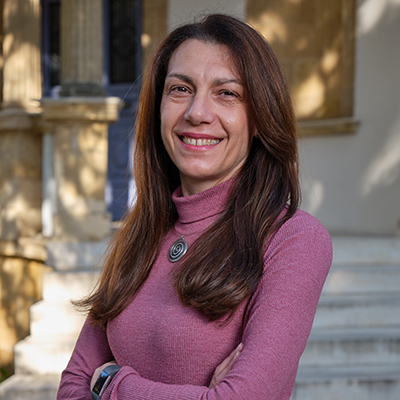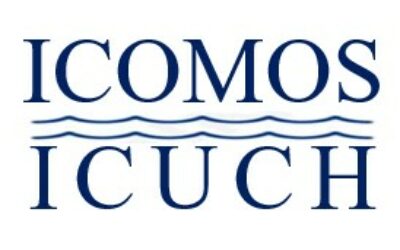
Stella Desmesticha
Assoc. Prof. Dr. Stella Desmesticha
Themes of special interest – Shipwreck Archaeology, Maritime Transport Containers
Professional biography
Stella Demesticha completed her undergraduate studies in Archaeology in 1992, at the National University of Athens, Greece, (Department of History and Archaeology, Faculty of Philosophy) and continued at the Department of History and Archaeology of the University of Cyprus, where she got her PhD in Archaeology, in 2002. She worked for 7 years (2000- 2006) at the Piraeus Bank Group Cultural Foundation, in Athens, Greece (as head of the Museums Department and in 2006, as vice director of the Foundation). In 2006 she also taught Maritime Archaeology at the University of Peloponnese, Greece, and since 2007 she lectures at the University of Cyprus.
She specializes in maritime archaeology, with special interest in shipwrecks, maritime transport containers, ancient seaborne trade routes and economy in the eastern Mediterranean. In 2011 she created the Maritime Archaeological Research Laboratory (MARELab) at the Archaeological Research Unit of the University of Cyprus. She currently directs two ongoing underwater excavation projects at the Mazotos and the Nissia Shipwreck sites. She teaches both under- and post graduate courses, co-ordinates a Master’s Programme (Field Archaeology on Land and Under the Sea) and supervises PhD students.
Dr Demesticha has coordinated two funded research projects: (i) Sailing in Cyprus through the Centuries: An Interdisciplinary Approach (ΑΝΘΡΩ/0311(ΒΕ)/09): co-financed by the European Development Funds and the Republic of Cyprus through the Research Promotion Foundation (RPF), Cyprus; (ii) ΚΑΡΑΒΟΙ: The Ship Graffiti on the Medieval and Post Medieval Monuments of Cyprus: Mapping, Documentation and Digitisation: funded by the Leventis Foundation Research Committee, University of Cyprus. As the director of MARELab, she is currently partner of a larger EU project, entitled iMARECULTURE: Advanced VR, iMmersive serious games and Augmented Reality, as tools to raise awareness and access to European underwater CULTURal heritage (Horizon 2020 – CULT-COOP-08-2016 (2016 – 2019); it aims at creating 3D applications and serious games on ancient seaborne trade and on the methods and techniques of underwater archaeology.
